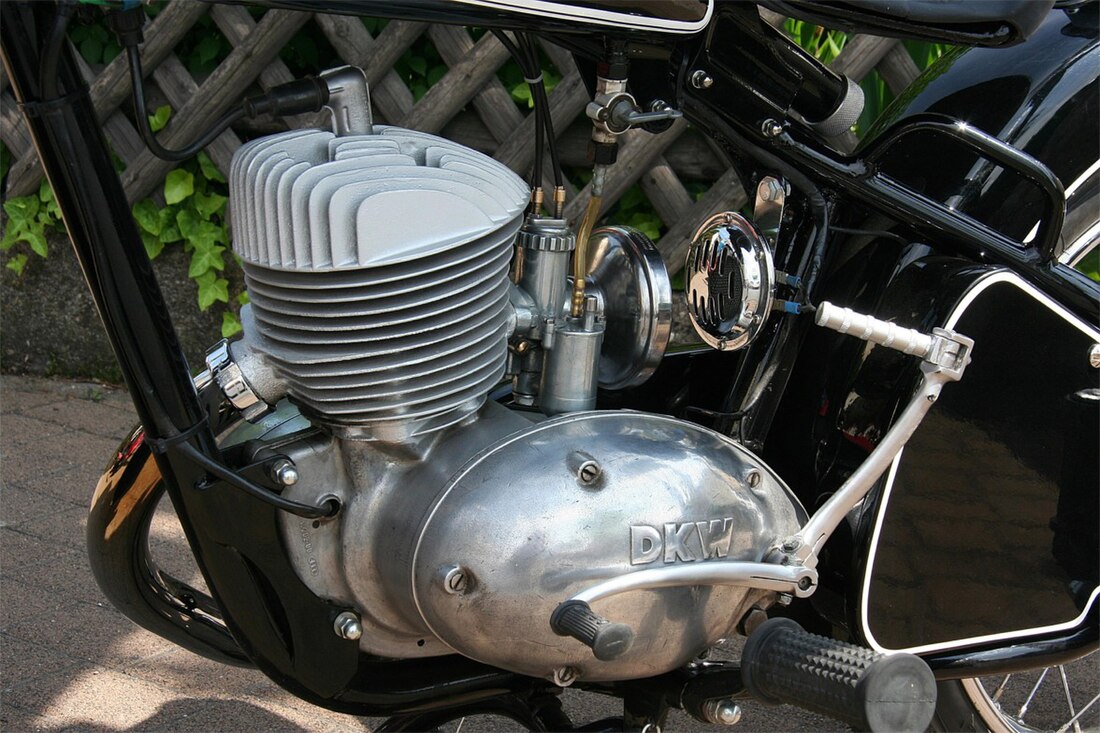A single-cylinder engine, sometimes called a thumper, is a piston engine with one cylinder. This engine is often used for motorcycles, motor scooters, motorized bicycles, go-karts, all-terrain vehicles, radio-controlled vehicles, power tools and garden machinery (such as chainsaws, lawn mowers, cultivators, and string trimmers). Single-cylinder engines are made both as 4-strokes and 2-strokes.

Characteristics

Compared with multi-cylinder engines, single-cylinder engines are usually simpler and compact.[1] Due to the greater potential for airflow around all sides of the cylinder, air cooling is often more effective for single cylinder engines than multi-cylinder engines. This reduces the weight and complexity of air-cooled single-cylinder engines, compared with liquid-cooled engines.
Drawbacks of single-cylinder engines include a more pulsating power delivery through each cycle and higher levels of vibration.[2] The uneven power delivery means that often a single-cylinder engine requires a heavier flywheel than a comparable multi-cylinder engine, resulting in relatively slower changes in engine speed. To reduce the vibration level, they often make greater use of balance shafts than multi-cylinder engines,[3] as well as more extreme methods such as a dummy connecting rod (for example the Ducati Supermono).[4][5] These balancing devices can reduce the benefits of single-cylinder engines regarding lower weight and complexity.
Most single-cylinder engines used in motor vehicles are fueled by petrol (and use a four-stroke cycle),[6][7][8] however diesel single-cylinder engines are also used in stationary applications (such as the Lombardini 3LD and 15LD).
A variation known as the split-single makes use of two pistons which share a single combustion chamber.
Uses

Early motorcycles, automobiles and other applications such as marine engines all tended to be single-cylinder. The configuration is almost exclusively used in portable tools, along with garden machinery such as lawn mowers.[9] Single cylinder engines also remain in widespread use in motorcycles, motor scooters, go-karts, auto rickshaws, and radio-controlled models. From 1921 to 1960, the Lanz Bulldog tractor used a large horizontally-mounted single cylinder two-stroke engine.[10] However they are rarely used in modern automobiles and tractors, due to developments in engine technology.
Single cylinder engines remain the most common engine layout in motor scooters and low-powered motorcycles. The Honda Super Cub (the motor vehicle with the highest overall sales since its introduction in 1958) uses a 49 cc (3.0 cu in) four-stroke single-cylinder engine. There are also several single-cylinder sportbikes (such as the KTM 690 Duke R), dual-sport motorcycles (such as the BMW G650GS) and the classic-styled Royal Enfield 500 Bullet.[11][12]
The Moto3 class in the MotoGP World Championship have used four-stroke 250 cc (15.3 cu in) single cylinder engines since the class replaced 125 cc (7.6 cu in) two-strokes in 2012.
Other single-cylinder engines
Engines of other sorts, like the beam engine and certain types of Stirling engine, operate using one cylinder and thus can also be considered single-cylinder engines.
References
Wikiwand in your browser!
Seamless Wikipedia browsing. On steroids.
Every time you click a link to Wikipedia, Wiktionary or Wikiquote in your browser's search results, it will show the modern Wikiwand interface.
Wikiwand extension is a five stars, simple, with minimum permission required to keep your browsing private, safe and transparent.
